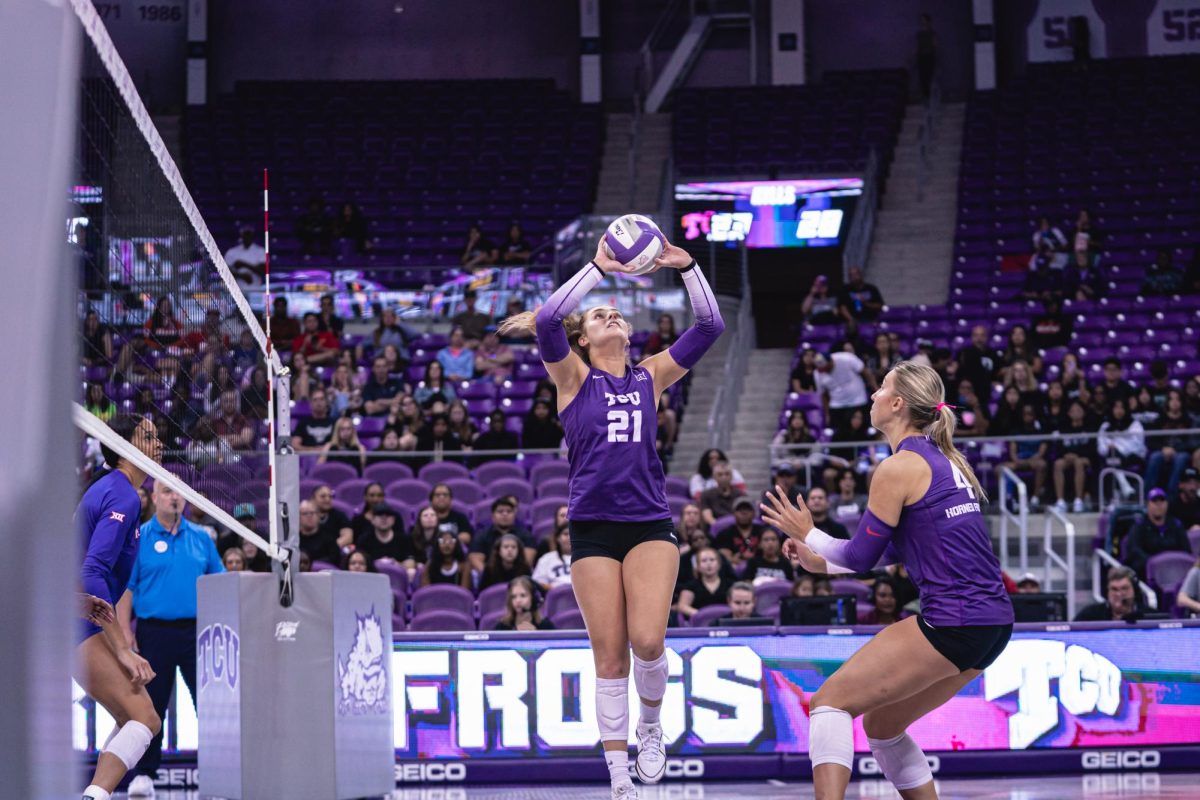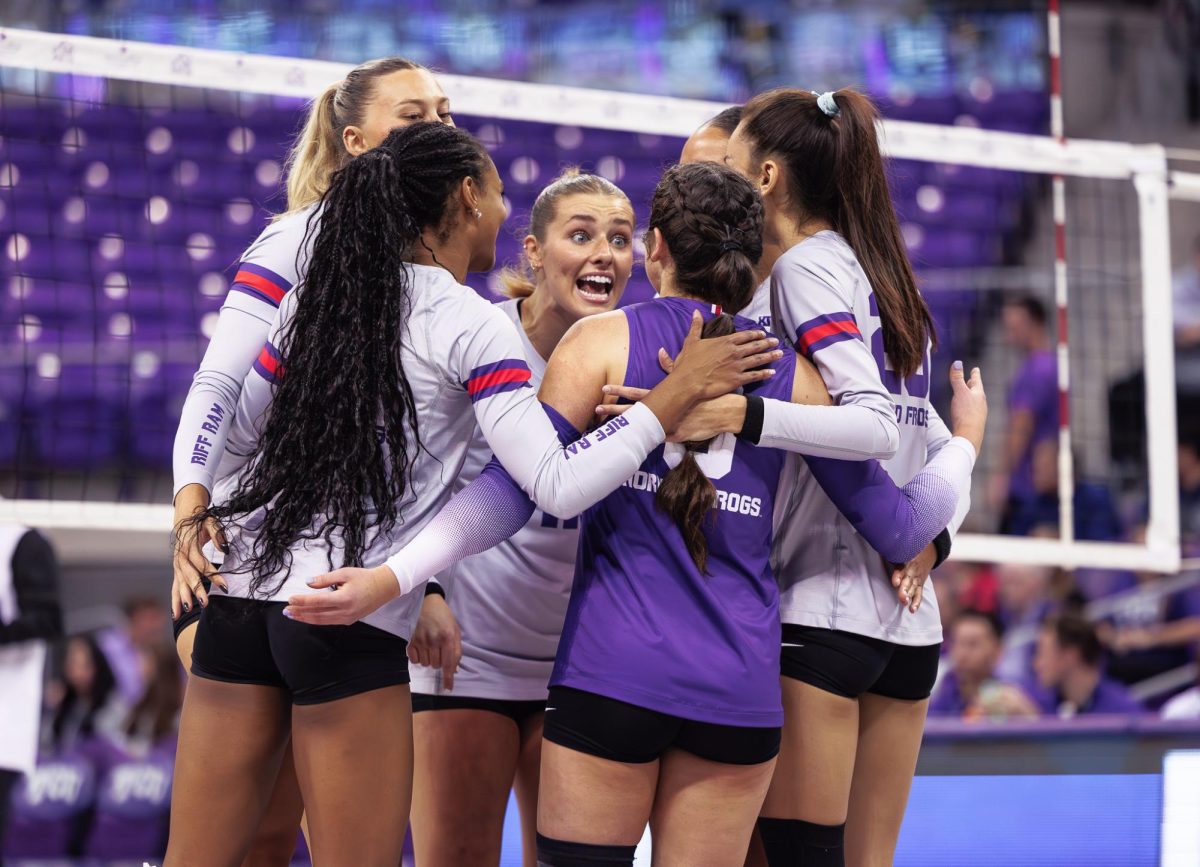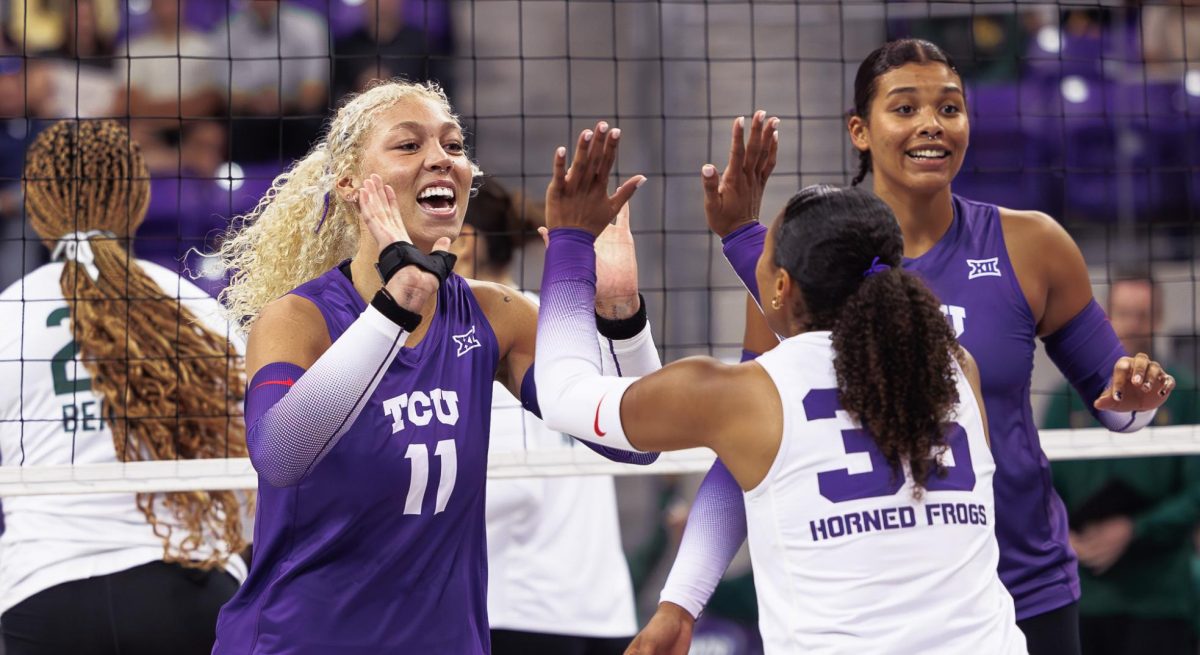Rule Change Sparks Debate
In the volleyball world, double contact from a setter’s point of view is when they set, their hands don’t simultaneously touch the ball. If this were called by the referees, the opposing team would earn a point. Now, there’s a change. On Feb. 20, the NCAA announced a game changer in the women’s indoor volleyball world. The Playing Rules Oversight Panel approved double contacts in a single attempt from the offensive team. The twist is this: the contact must occur on the second hit and before the ball goes over the net – a typical position for the setter to find themselves in. “Through the years, officiating double contacts has sparked intense debates between coaches and volleyball officials during matches,” the NCAA wrote in their press release. “Committee members think the proposed elimination of this judgment call can bring more consistency to the game.”
Game Changer
Lily Nicholson, a sophomore setter for TCU’s indoor volleyball team, has played in the setting position since she was 12. She wasn’t surprised by the rule change since the double contact call can be pretty “subjective”. “Some people could take it negatively but I am just trying to see the positive of it from lessons and mistakes and missed points for the other team…Basically I can try and set every ball now. One critique of the rule change is the art and skill of setting does not matter, however Nicholson disagrees. “You can’t just throw the skill out the window. There’s still technique that’s behind setting. I can’t just tap it [the ball] with one hand, and then the other hand you know? It’s still the same skill”. The NCAA also cited that with the rule change that it would “promote the continuation of play, which would make the game more entertaining for the players and fans,” in the long term.
Coaches and Players React
Head coach for the Horned Frogs, Jason Williams played football at Baylor and at the same time played club volleyball for the university. “In terms of growth for the game, for TV and for fans, it’s going to speed up the game and allow for more rallies. The fans like rallies they don’t like just pass set kill,” coach Williams said. “You want the game to get more aggressive and faster”. Williams stated, although he comes from a school where a clean setting was ingrained, he supports “whatever it takes to grow the sport” as the game of volleyball is evolving. Him and Nicholson both agree that maintaining control of the ball is crucial for rallying. “For me I’m a fan of it. At the end of the day when you’re doubling the ball you’re not setting it clean anyways. So there’s no real advantage that you’re gaining by it, Williams said. “I’m a coach where I like to score the points. I don’t necessarily like to celebrate when the other team gives us free points. When asked about it with the NCAA, I questioned why they were happy getting a free point. Just earn your points.”



